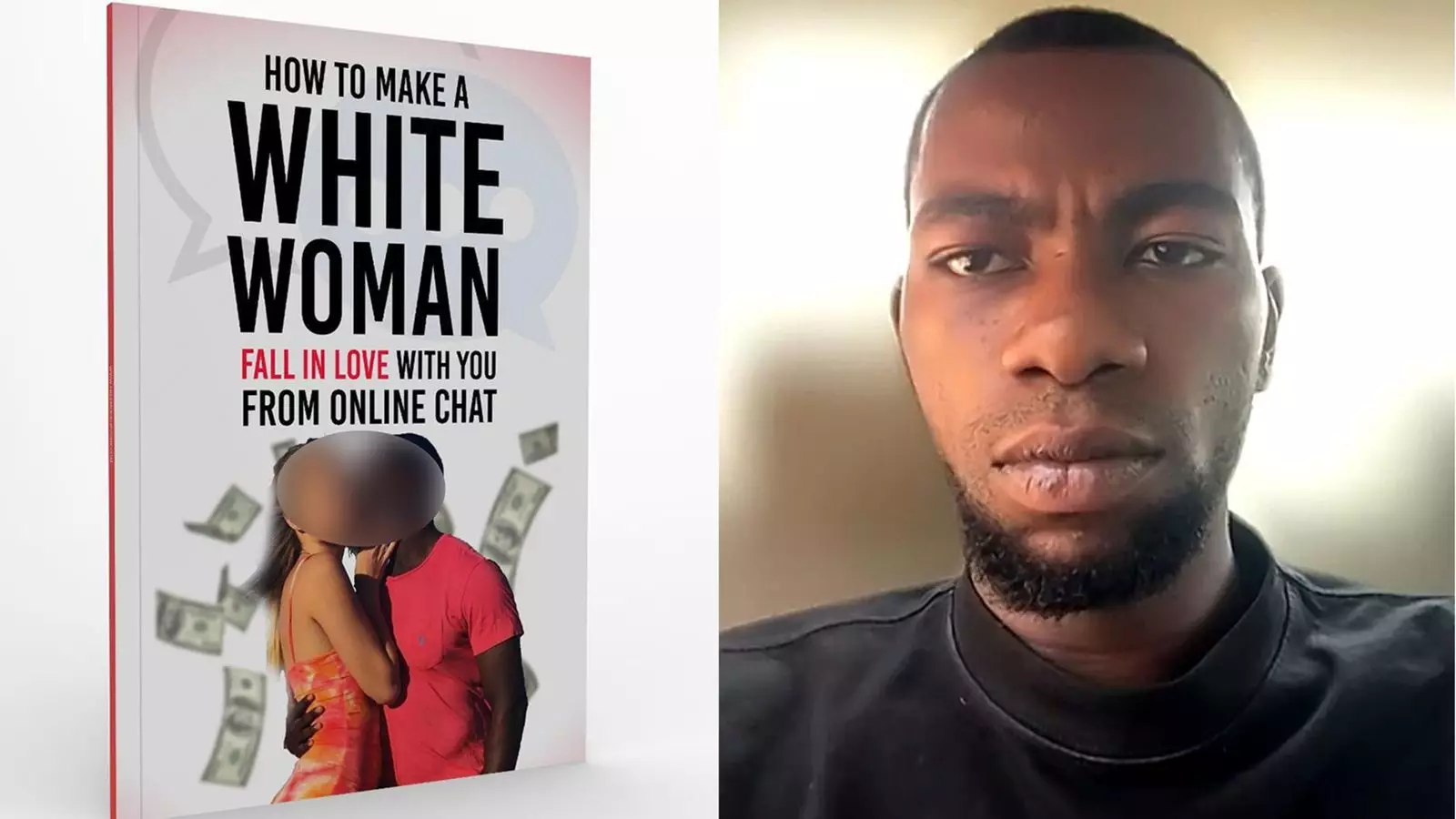Romance fraud is a distressing crime that has been on the rise in recent years, victimizing unsuspecting individuals who are looking for love and companionship online. While countless people hope to find genuine connections and relationships through social media and dating apps, there are individuals like Chris Maxwell who exploit these platforms for their own financial gain. This article explores the dark world of romance fraud, shedding light on the methods used by scammers, the devastating impact on victims, and the steps being taken to combat this growing problem.
Chris Maxwell, a 25-year-old Nigerian, reveals his experience as a romance scammer, admitting to conning up to 30 victims out of more than $70,000 (£56,000) over a five-year period. Maxwell would assume the identity of a handsome American soldier, drawing victims into online relationships. He shares that initially, he felt guilty about his actions, but as he amassed significant sums of money, his remorse faded away. Maxwell’s story is just one example of the countless individuals who engage in this deceitful behavior, preying on vulnerable individuals searching for love and connection.
The UK has witnessed a sharp rise in romance fraud cases, with victims losing over £88 million in 2020 alone. These figures highlight the urgent need to address the issue and protect potential victims from falling into the clutches of scammers. Chris Maxwell’s story serves as a wake-up call, exposing the devastating impact that romance fraud can have on unsuspecting individuals.
Maxwell shares his modus operandi, explaining how he targeted women over the age of 40 in the US, UK, Canada, and Germany. He would establish trust by finding common ground with his victims, taking advantage of their vulnerabilities and emotional needs. The leaked 40-page guide entitled “How To Make A White Woman Fall In Love With You From Online Chat” provides insight into the tactics employed by scammers. The guide advocates for research on the victim’s social media profiles, learning about their hobbies, pets, jobs, and passions. Additionally, it encourages the use of compelling pickup lines, engaging conversations, humor, and well-timed compliments to manipulate victims into developing a deep emotional connection.
Romance fraud leaves victims heartbroken and financially devastated. One American woman, whom Maxwell targeted, handed over more than $30,000 (£24,000). When she became aware of Maxwell’s deception, she suffered from emotional distress and depression. While she eventually forgave him, the damage had already been done. Unfortunately, the majority of victims do not receive any restitution, leaving them to pick up the pieces of their shattered lives alone.
Chris Maxwell eventually found his way out of a life of crime after being introduced to Social Catfish, a company that helps identify fraudsters through reverse search technology. He now works as a consultant for the firm, using his expertise to assist in the fight against romance fraud. Maxwell claims to have leaked the romance scammer’s guide he once relied on, hoping to undermine the tactics used by his former colleagues.
Romance fraud reports increased by more than a fifth (22%) in 2020 compared to the previous year. Victims span different age groups and demographics, with even gay males being disproportionately targeted. Detective Constable Rebecca Mason emphasizes that while some individuals may be more susceptible to being targeted, anyone can fall victim to romance scams. The surge in dating app usage preceding Valentine’s Day creates a ripe environment for fraudsters, who can now use AI technology to create realistic identities and images to deceive their victims.
Thanks to efforts by organizations like Victim Support and Action Fraud, more and more romance fraud cases are being reported. However, it remains a vastly underreported crime. Wayne Stevens, national fraud lead at Victim Support, highlights the common misconception that romance fraud only affects older individuals. In reality, people of all ages and backgrounds can become victims of this devastating crime.
Romance fraud is a pervasive problem in today’s digital society. Stories like Chris Maxwell’s shed light on the tactics employed by scammers and the disastrous consequences suffered by victims. It is crucial to raise awareness about this issue, educate potential victims about the signs of romance fraud, and provide support to those who have already fallen victim. By working together, we can combat romance fraud and protect individuals from the heartbreak it causes.

Leave a Reply